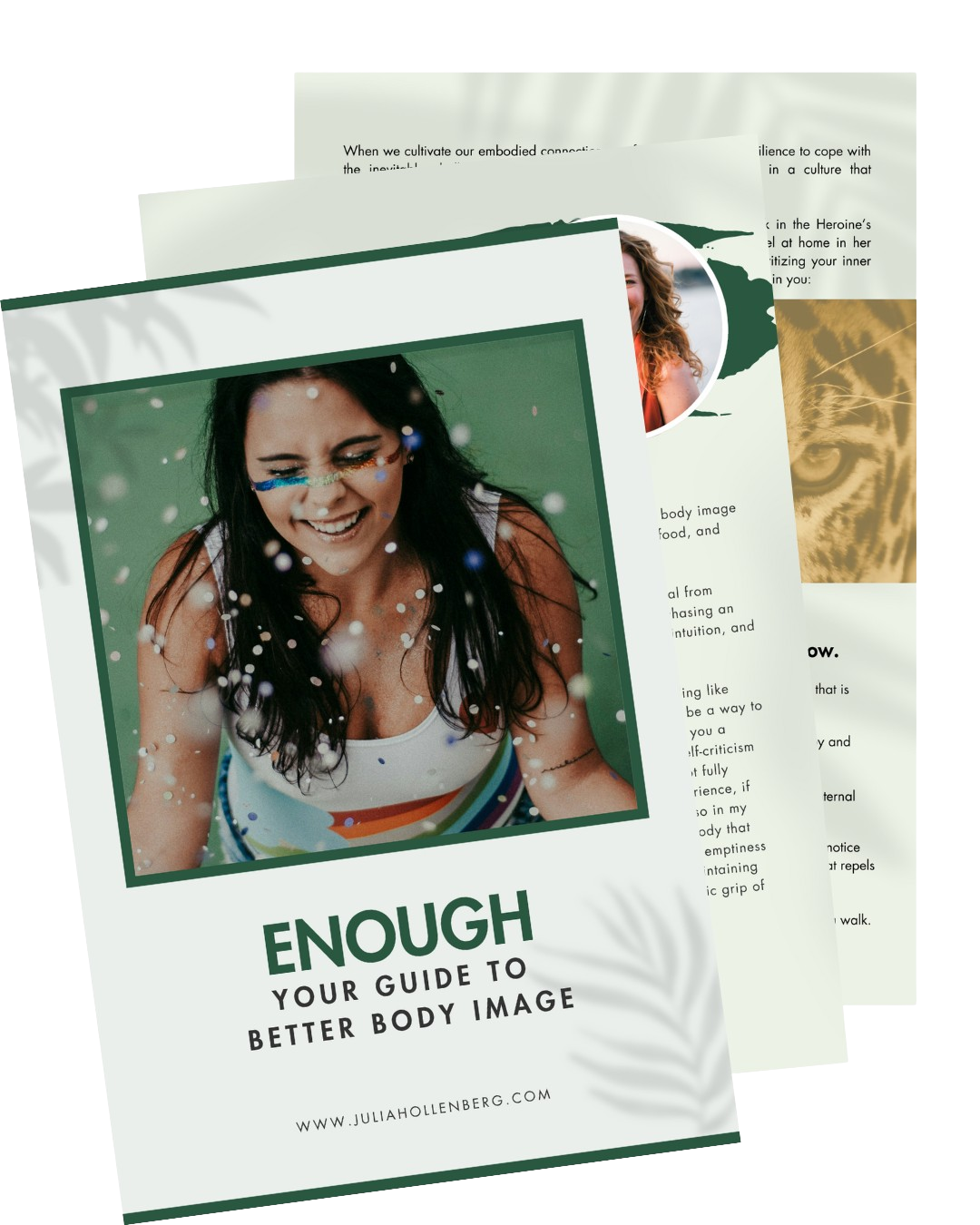Hey friends, we are well into 2025 and this is a popular time to be making some goals or resolutions about your self-care and health habits. While I don’t personally work with resolutions or work with them in my clients, I do think it’s worth reflecting on how we are taking care of ourselves and our bodies. And the new year can be a potent time to do that.
So my work is all about supporting people in building a sustainable enjoyable and respectful relationship with their bodies that supports health and well-being, physical health, mental health, emotional health, and well-being. And it’s a pretty well-established fact, truth, let me say a well-established truth that movement, as I like to say exercise or movement is something that does maintain and improve our health.
So that’s in general and for most people, and yet if knowledge were enough, that would be so amazing. But knowledge is not enough. And I’m constantly encountering this dilemma of why is it so hard to begin exercising. And so while the truth is there that we know that it supports our health, it is a very complex matter that has a lot of reasons, sort of running underneath the surface for why it can be so complicated and so difficult to begin exercising.
So this is the first of a four-part miniseries that is looking at that question, why in the heck is it so, so freaking hard to begin exercising? Okay, so the first thing that might be getting in the way of you starting or restarting exercise is perhaps your lived experience with moving your body has been one of punishment, one that has felt miserable for most or all of the time.
So if you were made to feel by culture or by your parents or by your friends or something like that, that your body was somehow too big or not good enough, maybe you were in the gym when you were 14 years old, just slaving away on the treadmill. Oh, or maybe you went to Weight Watchers with your mom and you found out that you could exercise to earn back points and so you found yourself doing jumping jacks in your room or again like running around the track or going to the gym and slaving and usually at quite a high intensity.
That just feels miserable. And if you’ve been on diets a lot in your life that have included an exercise component, you may have been not eating enough and then expecting your body to exercise on top of that. And that is a real recipe for it feeling grueling and miserable and just not enjoyable at all. And the feeling of that. Right. So when those are the dominant experiences, or maybe the only experiences with Exercise.
The message is that you need to exercise because your body is not good enough in some way. So it becomes a punishment for having the body that you have and that is oh, so heavy and so painful. And at a certain point, your system will say, enough of that, right? I’m not doing that anymore. And if you would like to be, or you are on a journey in healing your relationship to food and body, you might think, well, I’m thinking differently about exercise now.
But it’s not just a light switch. And it’s hard to go from having a relationship with a movement that is like punishment to one that is self-care. It’s like there’s not a, there’s not a slot in your system for exercise to be used as self-care, even if there’s a part of your conscious mind that knows it. So you may even be, you may be in a state of feeling like you should be exercising but not doing it.
But yet the sort of, pull inside of you, the imperative, the should is there, there, but then not doing it is also creating a weight of guilt as well. Oh, what a heavy, heavy burden. So I want to encourage you that it is possible, right? If you resonate with this, it is possible to create a new relationship to moving your body where its primary motivation and function is as self-care.
However, it often requires that you take a break first, that you strip away the shoulder and give yourself permission to not exercise, to not go to the gym, to not even go on a walk, to not have to go to yoga, right? If that’s been something that’s been weaponized against you, just the permission to not. And that period of sort of stepping away physically and mentally as well, right?
Letting yourself off the hook clears the decks and creates an opening eventually, I don’t know after how much time. That’s very individual, but it creates an opening. It creates this space for you to be able to return to the question of exercise or moving your body from a place of your choosing. So you bring your agency, you bring your autonomy to the question of how do I want to move my body?
Do I want to move it at all? How does it feel? So that, that break, that break is a really important part of the process of healing your relationship to movement and finding your way back to it in a way that feels self-care. So stay tuned. We’re going to continue this conversation about this question. Why is exercise so freaking hard to begin? If you’re watching on YouTube, you can subscribe to this channel.
And if you’re watching on my website. Feel free to peruse the content of my website. See what resonates with you. See what food and body therapy is all about. All right, until next time. Bye.

